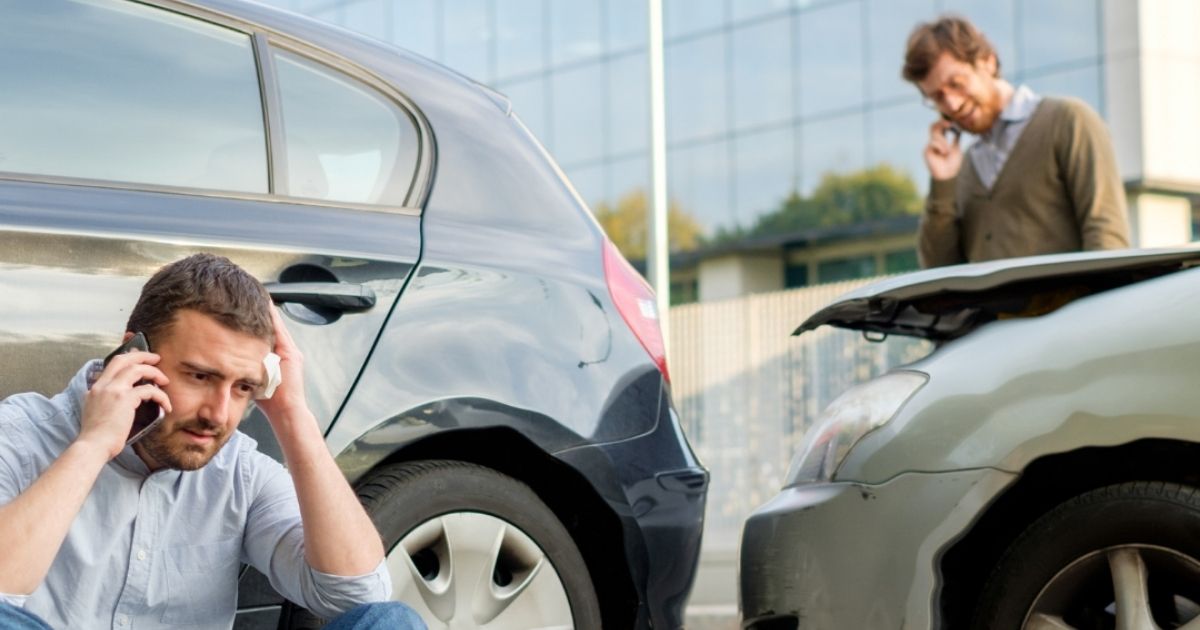The moments after a car accident can be confusing and overwhelming. Especially if the accident was serious and someone was injured or major damage occurred to the vehicles. Who is liable for damages? Determining fault in a car accident can be done in a number of ways. Sometimes, accidents are caused by drivers who have clearly violated traffic rules, such as running a red light or a stop sign or failing to yield the right-of-way. In these types of cases, fault is obvious and can be assigned to the driver who committed the error.
When the police are called to the scene of an accident, they will make a report of what happened. The police are trained accident investigators, and their report is key in determining who is at fault. They will interview the drivers involved in the accident, witnesses, and examine evidence at the scene, such as skid marks on the road, vehicle damage, and other clues. Location of vehicle damage can provide a lot of information about who hit whom.
Other sources of evidence that help determine fault for a car accident include traffic or surveillance cameras, cellphone videos taken by bystanders, medical reports from first responders, and dash cam and other data recorder information. Modern vehicles have an event data recorder (EDR) that can record vital evidence about the moments before, during, and after a crash. EDR data can include brake application, speed of the vehicle, rates of acceleration and deceleration, and steering angle.
What Should I Do if I am Involved in a Car Accident?
You should learn what to do after a car accident because when one actually happens, that is not the time to figure it out. Plus, you may be in shock and not thinking clearly. Knowing what is important beforehand may help guide you and determine fault. With more evidence, there is a better chance of a successful outcome in a personal injury claim. The following steps should be taken after a car accident:
- Call for help. If someone is injured, call 911 immediately for help. If medical services are not needed, call for law enforcement.
- Exchange information with the other driver. You should ask the other party for their driver’s license, insurance policy information, and contact information.
- Write down what happened. Ask any passengers with you for their versions of what happened during the accident. Eyewitness accounts are also important. Try to collect their contact information, and have them write down their accounts.
- Document any damage. Take as many photographs and videos as possible of the accident scene. This will help support your case in the event of a dispute between insurance companies. Photograph vehicle damage, property damage, skid marks on the road, weather conditions, and any injuries.
- Never admit guilt or apologize for what happened. This kind of statement could be recorded in the accident report and used to assign liability at a later time.
How is Fault Assessed in New Jersey?
If an accident is clearly one driver’s fault, then they are responsible for all damages. When more than one driver is responsible for the accident, then fault can be shared. New Jersey law follows the rule of modified comparative negligence, which means that the person suing for damages receives an amount that is reduced by their percentage of fault. For example, if the plaintiff is 25 percent at fault for the accident, that percentage is reduced from the total damage award. It is important to note that if you are more than 50 percent responsible for the accident, you are barred from collecting compensation.
Possible Compensation for a Car Accident Injury
If you are injured in a car accident, you might be able to receive two types of compensation: economic and non-economic damages. Economic damages refer to financial losses incurred by the plaintiff as a result of the accident. This includes medical costs, lost wages, property damage, rental car costs, and towing costs. Future costs must be taken into account in cases where serious injuries require ongoing medical treatment. The injuries may make it impossible to earn a living or continue in the same occupation. These losses must also be compensated.
Non-economic damages take into account the emotional toll of the accident, such as pain and suffering, emotional distress, loss of enjoyment of life, and in cases of a fatal accident, loss of companionship or consortium. These losses are harder to prove because they are subjective. Talking with an experienced lawyer can help you determine if you are eligible for any benefits.
Mount Laurel Car Accident Lawyers at the Law Office of David S. Rochman Help Injured Personal Injury Clients Establish Fault
Our Mount Laurel car accident lawyers at the Law Office of David S. Rochman can evaluate your case if you were injured by a negligent driver. We will investigate the accident and gather the evidence that you need to prove your case. Call us at 856-751-2345 or contact us online for a free consultation today. Located in Mount Laurel, New Jersey, we serve clients throughout the surrounding areas.


